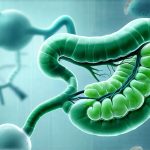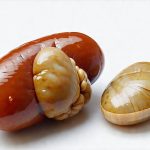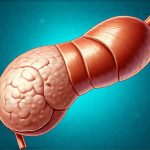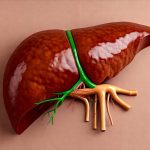The gallbladder, often underestimated, plays a vital role in our digestive system. This small organ stores bile, a fluid produced by the liver which is crucial for fat digestion and absorption of essential nutrients like vitamins A, D, E, and K. When functioning optimally, we barely notice it; however, when issues arise – such as gallstones or inflammation – the resulting discomfort can be significant, impacting daily life considerably. Many factors contribute to gallbladder health, ranging from dietary choices to lifestyle habits. Often, supporting gallbladder function doesn’t require drastic measures but rather incorporating simple, natural strategies into our everyday routines.
Unfortunately, modern diets and lifestyles frequently put a strain on this hardworking organ. Processed foods, high-fat diets, and sedentary behaviors can all contribute to sluggish gallbladder function and potentially lead to complications. While medical intervention may be necessary in some cases, many individuals can proactively support their gallbladder health through natural methods that focus on optimizing digestion, reducing inflammation, and promoting overall well-being. This article will explore practical, daily strategies you can implement to nurture your gallbladder’s function and contribute to a healthier digestive system.
Dietary Strategies for Gallbladder Health
Diet is arguably the most impactful factor influencing gallbladder function. A diet rich in whole, unprocessed foods provides the necessary nutrients for optimal bile production and flow while minimizing stress on the organ. Focusing on nutrient density rather than calorie restriction is key. Excessive fat intake, particularly from unhealthy sources like fried foods and processed snacks, forces the gallbladder to work harder, increasing the risk of gallstone formation and inflammation. Conversely, drastically reducing fat can also be problematic as it may signal the gallbladder to release less bile, leading to stagnation. The goal isn’t to eliminate fats entirely but to choose healthy options in moderation.
- Incorporate plenty of fiber-rich foods like fruits, vegetables, and whole grains into your diet. Fiber helps regulate digestion and prevents constipation, which can contribute to bile buildup.
- Prioritize lean proteins such as fish, poultry (skinless), beans, and lentils.
- Opt for healthy fats from sources like avocados, olive oil, nuts, and seeds. These provide essential fatty acids without overburdening the gallbladder.
- Limit your intake of refined sugars, processed foods, and excessive amounts of red meat.
Hydration is also crucial. Water helps maintain proper bile consistency and facilitates its flow through the biliary system. Aim for at least eight glasses of water daily, adjusting based on activity level and climate. Furthermore, consider incorporating foods known to support liver health – such as beets, artichokes, and dandelion greens – as a healthy liver indirectly supports gallbladder function by producing adequate bile. A balanced, whole-foods diet is the cornerstone of gallbladder wellness.
The Role of Specific Foods & Beverages
Certain foods and beverages are particularly beneficial for promoting gallbladder health due to their specific properties. For example, apple cider vinegar (diluted in water) has been traditionally used to stimulate bile flow and aid digestion. However, it’s important to note that its effectiveness is not scientifically proven and should be consumed cautiously, especially by individuals with acid reflux or ulcers. Similarly, lemon juice, also diluted in water, can encourage liver detoxification and support bile production. Beyond these specific beverages, incorporating bitter greens into your diet – like arugula, radicchio, and endive – can naturally stimulate digestive enzyme production and bile release.
- Bitter foods trigger a digestive response that prepares the body for food intake, improving overall digestion and reducing the workload on the gallbladder.
- Turmeric, with its active compound curcumin, possesses potent anti-inflammatory properties which may help reduce inflammation in the biliary system. Incorporate it into your cooking or consider a high-quality turmeric supplement (consulting with a healthcare professional first).
- Ginger can also aid digestion and reduce nausea, potentially alleviating discomfort associated with gallbladder issues.
It’s crucial to listen to your body and pay attention to how different foods affect you. What works for one person may not work for another. Gradual changes and mindful eating are more sustainable than restrictive diets. Food as medicine is a powerful concept when it comes to supporting gallbladder function, but requires individualization and awareness.
Herbal Support & Supplements (with Caution)
While dietary modifications form the foundation of gallbladder support, certain herbs and supplements may offer additional benefits. Milk thistle, for instance, is renowned for its liver-protective properties and can indirectly benefit gallbladder health by improving liver function and bile production. Artichoke extract has also shown promise in stimulating bile flow and reducing symptoms associated with indigestion. However, it’s absolutely vital to approach herbal remedies and supplements with caution and consult a qualified healthcare professional before incorporating them into your routine.
- Many herbs can interact with medications or have contraindications for certain health conditions.
- Supplements are not regulated as strictly as pharmaceuticals, so quality and purity can vary significantly. Choose reputable brands that undergo third-party testing.
- Self-treating gallbladder issues without consulting a doctor is strongly discouraged. These remedies should be viewed as complementary to medical advice, not replacements for it.
Consider the potential side effects and interactions carefully before using any herbal remedy or supplement. A holistic approach, combining dietary changes with targeted supplementation under professional guidance, can provide the most effective support for gallbladder function. Always prioritize safety and informed decision-making.
Lifestyle Factors & Movement
Beyond diet, several lifestyle factors significantly impact gallbladder health. Regular physical activity is crucial as it promotes healthy digestion, reduces stress, and helps maintain a healthy weight – all of which contribute to optimal gallbladder function. Sedentary lifestyles can lead to sluggish digestion and increased risk of gallstone formation. Aim for at least 30 minutes of moderate-intensity exercise most days of the week. This could include brisk walking, swimming, cycling, or any activity you enjoy that gets your body moving.
Stress management is another critical component. Chronic stress can disrupt digestive processes and negatively impact gallbladder function. Incorporate stress-reducing techniques into your daily routine, such as yoga, meditation, deep breathing exercises, or spending time in nature. Prioritizing sleep is also essential, as adequate rest allows the body to repair and rejuvenate itself, including the digestive system. A holistic approach that addresses both physical and mental well-being is paramount.
Furthermore, paying attention to your bowel movements is important. Constipation can lead to bile buildup in the gallbladder, increasing the risk of complications. Ensuring regular bowel movements through adequate hydration, fiber intake, and exercise will help maintain a healthy digestive system. Finally, avoid skipping meals or engaging in extreme dieting practices as these can disrupt digestion and place unnecessary stress on the gallbladder. Consistent mealtimes and mindful eating habits are essential for optimal function.
This information is intended for general knowledge and informational purposes only, and does not constitute medical advice. It is essential to consult with a qualified healthcare professional for any health concerns or before making any decisions related to your health or treatment.


















